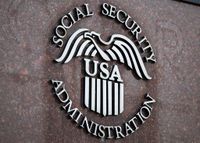In a dramatic turn of events, a federal judge has temporarily halted Elon Musk’s Department of Government Efficiency (DOGE) from accessing sensitive data within the Social Security Administration (SSA). The ruling, delivered by Judge Ellen Hollander of the U.S. District Court for the District of Maryland, imposes stringent limitations on DOGE, requiring that all non-anonymized personally identifiable information obtained from SSA systems must be purged.
Issued on March 20, 2025, the restraining order follows a lawsuit from Democracy Forward, which is supported by various unions and advocacy groups, against the SSA. The lawsuit cites concerns over potential misuse of sensitive information, as the DOGE initiative purportedly lacks legitimate reasons “to root out fraud” as claimed by its advocates. Hollander criticized the efforts of DOGE as essentially a “fishing expedition,” seeking data without substantial evidence of fraud existing.
“The American public may well applaud and support the Trump Administration’s mission to root out fraud, waste, and bloat from federal agencies, including SSA, to the extent it exists. But, by what means and methods?” Hollander wrote in her extensive ruling. She notes that DOGE's lack of a defined objective could threaten the privacy of millions of Americans.
Skye Perryman, the CEO of Democracy Forward, expressed satisfaction with the ruling, stating, “Today, the court did what accountability demands—forcing DOGE to delete every trace of the data it unlawfully accessed. The court recognized the real and immediate dangers of DOGE’s reckless actions.” She emphasizes the importance of continued legal efforts to uphold data protections.
The temporary restraining order is not permanent; it will expire in 14 days unless further action is taken by the court. The SSA will still be able to share anonymized data with DOGE, but access to non-anonymized personal information is now contingent upon providing a detailed necessity for its use.
In an unexpected twist, Acting Social Security Commissioner Leland Dudek initially indicated that the ruling could force the SSA to shut down, arguing that it was overly broad and could affect the access of all employees. However, after a follow-up and further clarification from Hollander, he retracted that statement, assuring that the agency would continue operating and comply with the judge’s guidelines.
While the judge’s ruling was hailed by privacy advocates, it has drawn criticism from some Republican lawmakers. Members of the House Ways and Means Committee had previously pushed against any inquiry into DOGE’s access to SSA. They have accused those opposing the initiative of scoring political points.
Dudek acknowledged the initial misunderstanding, thanking the court for clarifying that the order did not extend to all SSA employees. “I appreciate that. The president is committed to keeping the Social Security offices open to serve the public,” Dudek added.
This debacle is shaping up to create a political storm, with accusations flying amidst the backdrop of the Trump administration's controversial policies regarding the federal workforce. Advocacy groups have voiced concerns that cuts associated with the DOGE initiative could jeopardize the timely distribution of benefits to millions of Americans, including those reliant on Social Security.
Lee Saunders, president of the American Federation of State, County and Municipal Employees, stated, “For almost 90 years, Social Security has never missed a paycheck—but now, 60 days into this administration, Social Security is on the brink.” His assertions bring an alarming perspective to the potential fallout from the ongoing situation.
Underlining the crisis, Dudek outlined the precarious state of the SSA, which services millions through Social Security and Supplemental Security Income. The connection between social safety nets and personal data privacy has emerged as a contentious issue, especially concerning the motives behind the DOGE operations.
In light of these developments, the SSA and DOGE are required to file a status report to the court by March 24, detailing compliance with the order. While the agency can share anonymized data, the scrutiny on how non-anonymized data is handled remains strict as broader discussions about data privacy continue to unfold under Musk’s ambitious but controversial governance.
As the lawsuit progresses, stakeholders will be keenly watching the fallout not just for the SSA, but for American privacy standards at large. Will the DOGE initiative manage to prove its value without infringing on civility and accountability? Only time will tell as the case develops in the coming weeks, guaranteed to have ramifications across various sectors of the federal government.







